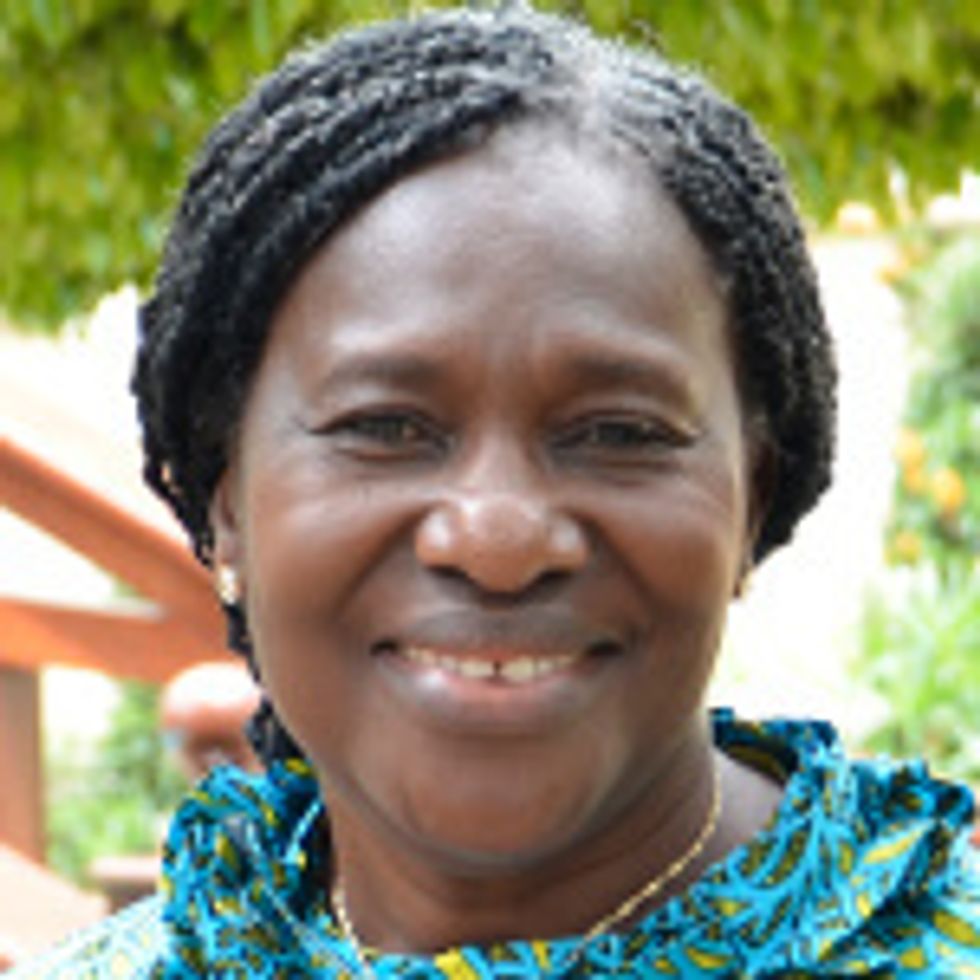What to Know about the Fast-Spreading Delta Variant

A highly contagious form of the coronavirus known as the Delta variant is spreading rapidly and becoming increasingly prevalent around the world. First identified in India in December, Delta has now been identified in 111 countries.
In the United States, the variant now accounts for 83% of sequenced COVID-19 cases, said Rochelle Walensky, director of the Centers for Disease Control and Prevention, at a July 20 Senate hearing. In May, Delta was responsible for just 3% of U.S. cases. The World Health Organization projects that Delta will become the dominant variant globally over the coming months.
So, how worried should you be about the Delta variant? We asked experts some common questions about Delta.
What is a variant?
To understand Delta, it's helpful to first understand what a variant is. When a virus infects a person, it gets into your cells and makes a copy of its genome so it can replicate and spread throughout your body.
In the process of making new copies of itself, the virus can make a mistake in its genetic code. Because viruses are replicating all the time, these mistakes — also called mutations — happen pretty often. A new variant emerges when a virus acquires one or more new mutations and starts spreading within a population.
There are thousands of SARS-CoV-2 variants, but most of them don't substantially change the way the virus behaves. The variants that scientists are most interested in are known as variants of concern. These are versions of the virus with mutations that allow the virus to spread more easily, evade vaccines, or cause more severe disease.
"The vast majority of the mutations that have accumulated in SARS-CoV-2 don't change the biology as far as we're concerned," said Jennifer Surtees, a biochemist at the University of Buffalo who's studying the coronavirus. "But there have been a handful of key mutations and combinations of mutations that have led to what we're now calling variants of concern."
One of those variants of concern is Delta, which is now driving many new COVID-19 infections.
Why is the Delta variant so concerning?
"The reason why the Delta variant is concerning is because it's causing an increase in transmission," said Alba Grifoni, an infectious disease researcher at the La Jolla Institute for Immunology. "The virus is spreading faster and people — particularly those who are not vaccinated yet — are more prone to exposure."
The Delta variant has a few key mutations that make it better at attaching to our cells and evading the neutralizing antibodies in our immune system. These mutations have changed the virus enough to make it more than twice as contagious as the original SARS-CoV-2 virus that emerged in Wuhan and about 50% more contagious than the Alpha variant, previously known as B.1.1.7, or the U.K. variant.
These mutations were previously seen in other variants on their own, but it's their combination that makes Delta so much more infectious.
Do vaccines work against the Delta variant?
The good news is, the COVID-19 vaccines made by AstraZeneca, Johnson & Johnson, Moderna, and Pfizer still work against the Delta variant. They remain more than 90% effective at preventing hospitalizations and death due to Delta. While they're slightly less protective against disease symptoms, they're still very effective at preventing severe illness caused by the Delta variant.
"They're not as good as they were against the prior strains, but they're holding up pretty well," said Eric Topol, a physician and director of the Scripps Translational Research Institute, during a July 19 briefing for journalists.
Because Delta is better at evading our immune systems, it's likely causing more breakthrough infections — COVID-19 cases in people who are vaccinated. However, breakthrough infections were expected before the Delta variant became widespread. No vaccine is 100% effective, so breakthrough infections can happen with other vaccines as well. Experts say the COVID-19 vaccines are still working as expected, even if breakthrough infections occur. The majority of these infections are asymptomatic or cause only mild symptoms.
Should vaccinated people worry about the Delta variant?
Vaccines train our immune systems to protect us against infection. They do this by spurring the production of antibodies, which stick around in our bodies to help fight off a particular pathogen in case we ever come into contact with it.
But even if the new Delta variant slips past our neutralizing antibodies, there's another component of our immune system that can help overtake the virus: T cells. Studies are showing that the COVID-19 vaccines also galvanize T cells, which help limit disease severity in people who have been vaccinated.
"While antibodies block the virus and prevent the virus from infecting cells, T cells are able to attack cells that have already been infected," Grifoni said. In other words, T cells can prevent the infection from spreading to more places in the body. A study published July 1 by Grifoni and her colleagues found that T cells were still able to recognize mutated forms of the virus — further evidence that our current vaccines are effective against Delta.
Can fully vaccinated people spread the Delta variant?
Previously, scientists believed it was unlikely for fully vaccinated individuals with asymptomatic infections to spread Covid-19. But the Delta variant causes the virus to make so many more copies of itself inside the body, and high viral loads have been found in the respiratory tracts of people who are fully vaccinated. This suggests that vaccinated people may be able to spread the Delta variant to some degree.
If you have COVID-19 symptoms, even if you're fully vaccinated, you should get tested and isolate from friends and family because you could spread the virus.
What risk does Delta pose to unvaccinated people?
The Delta variant is behind a surge in cases in communities with low vaccination rates, and unvaccinated Americans currently account for 97% of hospitalizations due to COVID-19, according to Walensky. The best thing you can do right now to prevent yourself from getting sick is to get vaccinated.
Gigi Gronvall, an immunologist and senior scholar at the Johns Hopkins Center for Health Security, said in this week's "Making Sense of Science" podcast that it's especially important to get all required doses of the vaccine in order to have the best protection against the Delta variant. "Even if it's been more than the allotted time that you were told to come back and get the second, there's no time like the present," she said.
With more than 3.6 billion COVID-19 doses administered globally, the vaccines have been shown to be incredibly safe. Serious adverse effects are rare, although scientists continue to monitor for them.
Being vaccinated also helps prevent the emergence of new and potentially more dangerous variants. Viruses need to infect people in order to replicate, and variants emerge because the virus continues to infect more people. More infections create more opportunities for the virus to acquire new mutations.
Surtees and others worry about a scenario in which a new variant emerges that's even more transmissible or resistant to vaccines. "This is our window of opportunity to try to get as many people vaccinated as possible and get people protected so that so that the virus doesn't evolve to be even better at infecting people," she said.
Does Delta cause more severe disease?
While hospitalizations and deaths from COVID-19 are increasing again, it's not yet clear whether Delta causes more severe illness than previous strains.
How can we protect unvaccinated children from the Delta variant?
With children 12 and under not yet eligible for the COVID-19 vaccine, kids are especially vulnerable to the Delta variant. One way to protect unvaccinated children is for parents and other close family members to get vaccinated.
It's also a good idea to keep masks handy when going out in public places. Due to risk Delta poses, the American Academy of Pediatrics issued new guidelines July 19 recommending that all staff and students over age 2 wear face masks in school this fall, even if they have been vaccinated.
Parents should also avoid taking their unvaccinated children to crowded, indoor locations and make sure their kids are practicing good hand-washing hygiene. For children younger than 2, limit visits with friends and family members who are unvaccinated or whose vaccination status is unknown and keep up social distancing practices while in public.
While there's no evidence yet that Delta increases disease severity in children, parents should be mindful that in some rare cases, kids can get a severe form of the disease.
"We're seeing more children getting sick and we're seeing some of them get very sick," Surtees said. "Those children can then pass on the virus to other individuals, including people who are immunocompromised or unvaccinated."
GOOD10: The Pandemic Issue explores big-picture ways that science innovation and communication can usher in a more equitable, more progress-oriented, and safer world.
This issue is a collaboration among GOOD, leapsmag, and the Aspen Institute Science & Society Program.
The GOOD10 format explores fundamental issues facing humanity through the lenses of ten forces pushing the needle toward progress: Places, Philanthropists, Celebrities, Whistleblowers, Companies, Media, Products, Politicians, Scientists, and Actions. Across these categories, we seek to present unexpected and encouraging paradigms emerging from this historic crisis.
This special issue is available as an e-reader version for both desktop and mobile. It is also available as a free downloadable PDF.
TABLE OF CONTENTS:
- PLACES:
55 Lessons Learned About Science Communication Around the World; Quarantining Our Way Into Outer Space - PLACES:
Quarantining Our Way Into Outer Space - PHILANTHROPISTS:
An Exclusive Interview with Wendy Schmidt about Science in the Pandemic Era - CELEBRITIES:
Neil deGrasse Tyson Wants Celebrities to Promote Scientists - WHISTLEBLOWERS:
The Science Sleuths Holding Fraudulent Research Accountable - COMPANIES:
The Biggest Challenge for a COVID-19 Vaccine: Making It Accessible and Affordable - MEDIA:
Isaac Asimov on the History of Infectious Disease—And How Humanity Learned To Fight Back - PRODUCTS:
Will COVID-19 Pave the Way For DIY Precision Medicine? - POLITICIANS:
Will the Pandemic Propel STEM Experts to Political Power? - SCIENTISTS:
Would a Broad-Spectrum Antiviral Drug Stop the Pandemic? - ACTIONS:
Pseudoscience is Rampant: How Not to Fall For It - ACTIONS:
How COVID-19 Could Usher In a New Age of Collective Drug Discovery
THE EVENT:
"The Pandemic Science Summit" focused on how science innovation is key to society's future stability as we emerge from the pandemic, featuring:

Christopher Bailey – Arts and Health Lead, World Health Organization

Elisabeth Bik, Ph.D. – Microbiologist and scientific integrity consultant

Margaret Hamburg, M.D. – Foreign Secretary, National Academy of Medicine; former Commissioner, U.S. Food and Drug Administration

Peggy Oti-Boateng, Ph.D. – Director, Division of Science Policy and Capacity- Building, UNESCO

George Yancopoulos, M.D., Ph.D. – President and Chief Scientific Officer, Regeneron Pharmaceuticals
Kira Peikoff was the editor-in-chief of Leaps.org from 2017 to 2021. As a journalist, her work has appeared in The New York Times, Newsweek, Nautilus, Popular Mechanics, The New York Academy of Sciences, and other outlets. She is also the author of four suspense novels that explore controversial issues arising from scientific innovation: Living Proof, No Time to Die, Die Again Tomorrow, and Mother Knows Best. Peikoff holds a B.A. in Journalism from New York University and an M.S. in Bioethics from Columbia University. She lives in New Jersey with her husband and two young sons. Follow her on Twitter @KiraPeikoff.
Two Conservative Icons Gave Opposite Advice on COVID-19. Those Misinformed Died in Higher Numbers, New Study Reports.
Sean Hannity (left) and Tucker Carlson each told their audience opposite information about the threat of COVID-19, with serious consequences for those misinformed.
The news sources that you consume can kill you - or save you. That's the fundamental insight of a powerful new study about the impact of watching either Sean Hannity's news show Hannity or Tucker Carlson's Tucker Carlson Tonight. One saved lives and the other resulted in more deaths, due to how each host covered COVID-19.
Carlson took the threat of COVID-19 seriously early on, more so than most media figures on the right or left.
This research illustrates the danger of falling for health-related misinformation due to judgment errors known as cognitive biases. These dangerous mental blindspots stem from the fact that our gut reactions evolved for the ancient savanna environment, not the modern world; yet the vast majority of advice on decision making is to "go with your gut," despite the fact that doing so leads to so many disastrous outcomes. These mental blind spots impact all areas of our life, from health to politics and even shopping, as a survey by a comparison purchasing website reveals. We need to be wary of cognitive biases in order to survive and thrive during this pandemic.
Sean Hannity vs. Tucker Carlson Coverage of COVID-19
Hannity and Tucker Carlson Tonight are the top two U.S. cable news shows, both on Fox News. Hannity and Carlson share very similar ideological profiles and have similar viewership demographics: older adults who lean conservative.
One notable difference, however, relates to how both approached coverage of COVID-19, especially in February and early March 2020. Researchers at the Becker Friedman Institute for Economics at the University of Chicago decided to study the health consequences of this difference.
Carlson took the threat of COVID-19 seriously early on, more so than most media figures on the right or left. Already on January 28, way earlier than most, Carlson spent a significant part of his show highlighting the serious dangers of a global pandemic. He continued his warnings throughout February. On February 25, Carlson told his viewers: "In this country, more than a million would die."
By contrast, Hannity was one of the Fox News hosts who took a more extreme position in downplaying COVID-19, frequently comparing it to the flu. On February 27, he said "And today, thankfully, zero people in the United States of America have died from the coronavirus. Zero. Now, let's put this in perspective. In 2017, 61,000 people in this country died from influenza, the flu. Common flu." Moreover, Hannity explicitly politicized COVID-19, claiming that "[Democrats] are now using the natural fear of a virus as a political weapon. And we have all the evidence to prove it, a shameful politicizing, weaponizing of, yes, the coronavirus."
However, after President Donald Trump declared COVID-19 a national emergency in mid-March, Hannity -- and other Fox News hosts -- changed their tune to align more with Carlson's, acknowledging the serious dangers of the virus.
The Behavior and Health Consequences
The Becker Friedman Institute researchers investigated whether the difference in coverage impacted behaviors. They conducted a nationally representative survey of over 1,000 people who watch Fox News at least once a week, evaluating both viewership and behavior changes in response to the pandemic, such as social distancing and improving hygiene.
Next, the study compared people's behavior changes to viewing patterns. The researchers found that "viewers of Hannity changed their behavior five days later than viewers of other shows, while viewers of Tucker Carlson Tonight changed their behavior three days earlier than viewers of other shows." The statistical difference was more than enough to demonstrate significance; in other words, it was extremely unlikely to occur by chance -- so unlikely as to be negligible.
Did these behavior changes lead to grave consequences? Indeed.
The paper compared the popularity of each show in specific counties to data on COVID-19 infections and deaths. Controlling for a wide variety of potential confounding variables, the study found that areas of the country where Hannity is more popular had more cases and deaths two weeks later, the time that it would take for the virus to start manifesting itself. By March 21st, the researchers found, there were 11 percent more deaths among Hannity's viewership than among Carlson's, again with a high degree of statistical significance.
The study's authors concluded: "Our findings indicate that provision of misinformation in the early stages of a pandemic can have important consequences for health outcomes."
Such outcomes stem from excessive trust that our minds tend to give those we see as having authority, even if they don't possess expertise in the relevant subject era.
Cognitive Biases and COVID-19 Misinformation
It's critically important to recognize that the study's authors did not seek to score any ideological points, given the broadly similar ideological profiles of the two hosts. The researchers simply explored the impact of accurate and inaccurate information about COVID-19 on the viewership. Clearly, the false information had deadly consequences.
Such outcomes stem from excessive trust that our minds tend to give those we see as having authority, even if they don't possess expertise in the relevant subject era -- such as media figures that we follow. This excessive trust - and consequent obedience - is called the "authority bias."
A related mental pattern is called "emotional contagion," in which we are unwittingly infected with the emotions of those we see as leaders. Emotions can motivate action even in the absence of formal authority, and are particularly important for those with informal authority, including thought leaders like Carlson and Hannity.
Thus, Hannity telling his audience that Democrats used anxiety about the virus as a political weapon led his audience to reject fears of COVID-19, even though such a reaction and consequent behavioral changes were the right response. Carlson's emphasis on the deadly nature of this illness motivated his audience to take appropriate precautions.
Authority bias and emotional contagion facilitate the spread of misinformation and its dangers, at least when we don't take the steps necessary to figure out the facts. Such steps can range from following best fact-checking practices to getting your information from news sources that commit publicly to being held accountable for truthfulness. Remember, the more important and impactful such information may be for your life, the more important it is to take the time to evaluate it accurately to help you make the best decisions.

